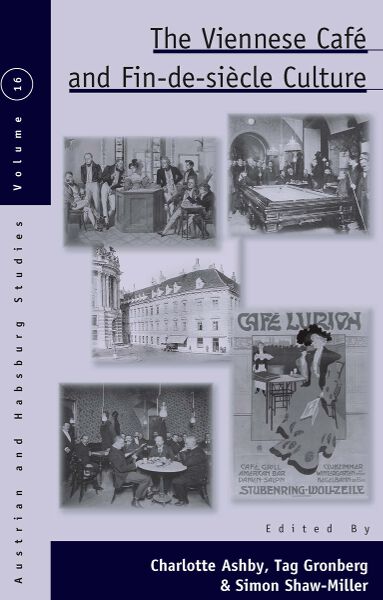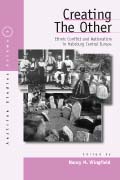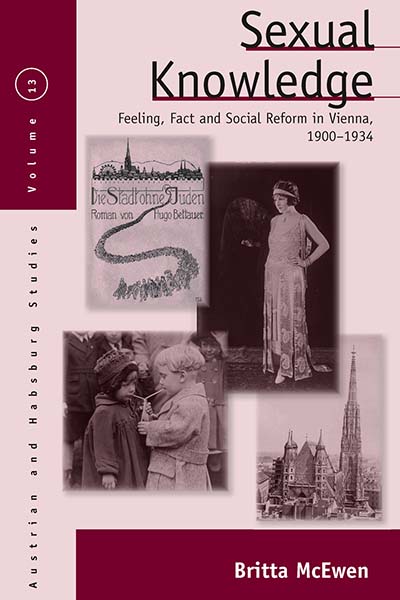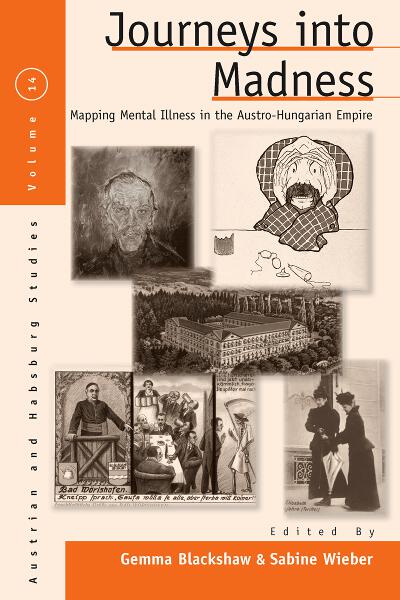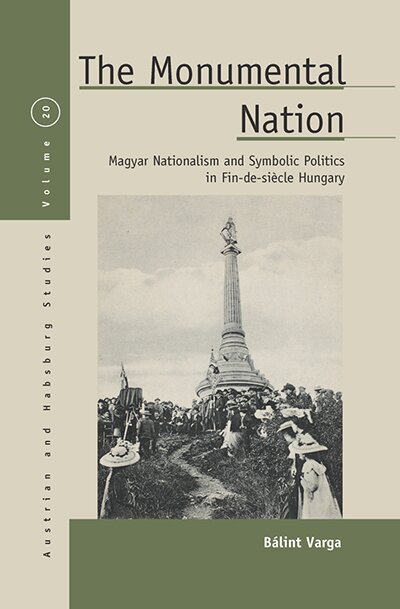
Series
Volume 20
Austrian and Habsburg Studies
See Related
History JournalsEmail Newsletters
Sign up for our email newsletters to get customized updates on new Berghahn publications.
The Monumental Nation
Magyar Nationalism and Symbolic Politics in Fin-de-siècle Hungary
Bálint Varga
300 pages, 19 illus., 11 tables, 1 map, bibliog., index
ISBN 978-1-78533-313-2 $135.00/£104.00 / Hb / Published (December 2016)
ISBN 978-1-78920-519-0 $34.95/£27.95 / Pb / Published (November 2019)
eISBN 978-1-80758-643-0 eBook
WINNER OF THE 2018 RICHARD G. PLASCHKA PRIZE FROM THE AUSTRIAN ACADEMY OF SCIENCES
Reviews
“…an excellent introduction to the social and cultural history of Hungary’s provincial urban centers and will be a valuable resource for historians of the Austro-Hungarian Empire.” • Austrian History Yearbook
“[The] outstanding merits of Varga’s book…include his mastery over both his subject and his overall lucid handling of analytical concepts. Based on a series of interrelated case studies, this monograph represents a nuanced interpretation of nineteenth-century state nationalism challenged on the ground by rival roads to modernity, and it offers far-reaching insights for readers beyond those interested in Hungarian history.” • East Central Europe
“The book is a significant contribution to the ‘national indifference’ debate. Varga takes the questions of this literature as his starting point, systematically reviewing each town’s schools, census data, language, nationality, and religious distribution, as well as the impact of institutions of national government or local elites and intelligentsia. This he does meticulously, using similar data sources across languages and regions. The book contains a wealth of information.” • American Historical Review
“In twelve short, very readable chapters, Varga… offers a convincing analysis of the shortcomings of efforts to create an inclusive Hungarian nation-state led by Magyar elites prior to World War I.” • Journal of Modern History
“Varga successfully alters how we think about Hungarian history and especially how we think about the story of ethnic and national belonging. His book challenges top-down histories that emphasize activities in the capital; instead he pro- vides us with a fascinating study of how local and regional identities reacted to, as well as helped to create, national myths, such as the one concerning the Hungarian conquest.” • Slavic Review
“By confining his study to a narrow time period, Varga achieves a broad thematic view over a wide geographic area. While several urban studies have compared nationalist movements to competing non- national loyalties, few country-level studies have managed to encompass such a breadth of interacting political forces. Varga’s clear, no-nonsense prose is suitable for undergraduates, but specialists will also benefit from this book, which synthesizes several trends in recent historiography into a coherent and interesting narrative.” • Central Europe
“…uncovers something valuable and authentic. In a sequence of ‘scenes from provincial life’, for which he draws masterfully on sources in all the relevant languages and genres, he shows us a rich tapestry of indigenous conditions in Hungary’s disparate regional townscapes.” • Journal of East Central European Studies
“This rather short book by a young Hungarian historian is an excellent study in politics of history. With a very short time span (end of nineteenth/beginning of twentieth century) and limited territory (five specified localities) covered, the study brings to foreground a series of important phenomena, some of them astonishingly topical today… It is with real pleasure that this wise and witty book reads: its vivid and ironical style is in contrast with the monumental subject of the story recounted.” • Acta Poloniae Historica
“In addition to charting the limits and varieties of nationalist mobilization in Habsburg Hungary, this well-researched study reveals an important and ultimately damaging dynamic of the centralist liberal state itself.” • Slavonic and East European Review
“This is an impressive work of scholarship, readable and compelling, that integrates local and national history, sheds new light on the Hungarian state’s efforts to integrate its minorities, and will prove thought provoking and enlightening for both students and scholars of modern Central European history.” • H-Nationalism
“This is a splendid and ambitious study of the tension between nationalizing ambitions and the stubborn realities of local politics. Varga has managed to synthesize primary and secondary sources from more than six languages, putting all of it into a coherent, accessible narrative that yields real analytic insights into the political culture of late nineteenth-century Hungary.” • Paul Hanebrink, Rutgers University
“Hungary’s Millennial monuments comprise a fascinating case study in nineteenth-century nationalism. Demonstrating impressive research skills, Bálint Varga has written a careful, comparative analysis that takes the reader to the farthest corners of Habsburg Hungary to consider the politics of public space.” • Robert Nemes, Colgate University
Description
From the 1860s onward, Habsburg Hungary attempted a massive project of cultural assimilation to impose a unified national identity on its diverse populations. In one of the more quixotic episodes in this “Magyarization,” large monuments were erected near small towns commemorating the medieval conquest of the Carpathian Basin—supposedly, the moment when the Hungarian nation was born. This exactingly researched study recounts the troubled history of this plan, which—far from cultivating national pride—provoked resistance and even hostility among provincial Hungarians. Author Bálint Varga thus reframes the narrative of nineteenth-century nationalism, demonstrating the complex relationship between local and national memories.
Bálint Varga has been a research fellow at the Institute of History of the Hungarian Academy of Sciences since 2013. In 2015, he was awarded the R. John Rath Prize from the Center for Austrian Studies at the University of Minnesota.

